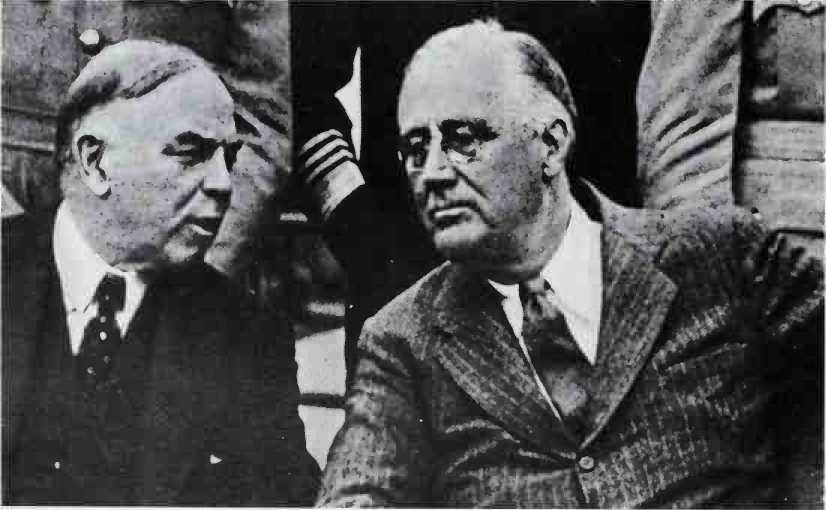The plenary sessions with Churchill and Roosevelt duly ratified the agreement on strategy in the European theatre reached by their military advisers. The intention was confirmed to advance as far north in

A Canadian host Mackenzie-King exchanges a few words with President Roosevelt during the Quebec Conference, August 1943.
Prime Minister also strongly favoured Operation "Culverin”, a plan for seizing the northern tip of Sumatra in 1944, which he saw as "the 'Torch’ of the Indian ' Ocean”. The British Joint Planners favoured a seaborne attack against the Burmese port of Akyab. The Americans simply wanted to re-open a land route | between Burma and China; they also saw the Akyab operations as the touchstone of ; whether the British really meant to lend a hand in 1943 in the war against Japan at all. The British Chiefs-of-Staff had no very clear ideas, except that seaborne operations against Burma would be impossible ' without draining landing craft and naval forces from the European theatre, which they were determined must not occur. It was finally agreed by the Conference, though somewhat nebulously, that land operations should be pushed on in Upper Burma in order to press the Japanese and. bring relief to China, Wingate playing a prominent part; but no conclusions were I reached as to further operations. j
Italy as possible in order to weaken the German army before "Overlord”, and with a view to invading southern France. Meanwhile the bomber offensive against the German economy (Operation "Point-blank”) was to be stepped up. In regard to the Far East and Pacific, however, it was not mistrust between allies but the variety of strategic options that caused the problems.




 World History
World History









